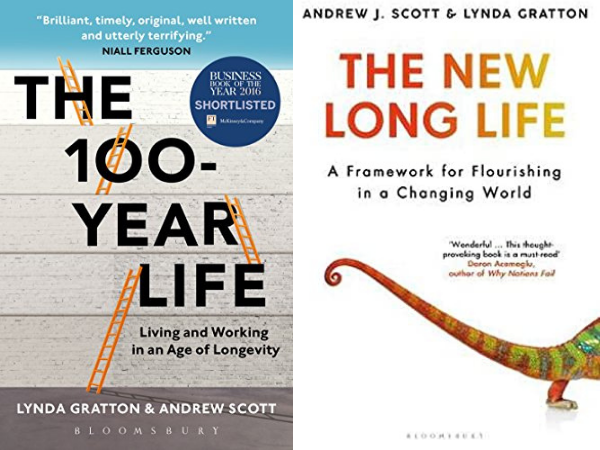At first glance, Herbert and Frank had very different careers. One gained a good education and then devoted his life to the Church. The other left school at 14 and spent the next 45 years as a jack-of-all-trades: ambulance driver, dairyman, mechanic, factory worker, and more.
I got to know both men shortly after they’d retired, and I discovered that they were very different in character, too. Herbert was kind but formal and detached. Frank was down-to-earth, unassuming, and excellent fun.
But when I learned a little more about them, I realized that, for all their differences, these two men had one big thing in common. Throughout their lives, both had an almost complete lack of choice.

The No-Choice Career
Herbert and Frank were born at a time when educational options were closely linked to family finances, and most working lives followed the same predictable pattern.
Whether you were marked out for one of the “professions” (like Herbert) or channeled into manual roles (like Frank), you could expect to spend 30 or 40 years at work. And then enjoy a short retirement – if you were lucky. In England in the early 20th century, the average life expectancy was just 51.
Herbert and Frank both started out by giving much of what they earned to their parents. Later, as married men, they both had to become breadwinners. Their wives looked after the childcare, along with all the household chores. They too had little choice in the matter.
Herbert and Frank both worked into their 60s, after which their brief retirements were paid for by simple pensions and state aid. They both outlived average life expectancy then, but died young by today’s standards – not long after I’d met them. They were my grandfathers.
When Long Life Meets High Tech
I thought a lot about Herbert and Frank when I read “The 100-Year Life” and “The New Long Life,” both by Andrew J. Scott and Lynda Gratton. The world described in these books is starkly different from the one my grandfathers inhabited, with a wealth of new choices on offer.
Now that further education is widely available, career options are much less connected to social standing, and family roles are so much more flexible.

But two other factors loom even larger in this landscape: dramatically longer lifespans, and vastly improved technology. Both of these bring choices that my grandfathers never had. Along with some significant new challenges.
Long-Life Possibilities and Pitfalls
That 51-year life expectancy has now climbed to 80. Children born today are more likely to live to 100 than not. We’re staying healthy for longer, too, allowing us to keep working if we want to.
Plus we get more time to change fields and take sideways or even backward career steps, to secure the roles that suit us best at different times in our lives. Neither of my grandfathers viewed their careers like that!
However, the flip side is that we have to work for longer – or the country will quickly go broke. We must also find our own ways to fund longer retirements. Herbert and Frank both assumed that savings and state aid would fund theirs, and they were right. But they’d likely have seen things differently if they’d expected to reach 100.
Technology is also a double-edged sword. It’s given many of us new choices about where, when and how we work. Including the chance to do tech-driven “side hustles,” like delivery driving or selling online.
But millions of jobs are now at risk, as automation and AI muscle in. True, many of the jobs that go will be difficult or dangerous ones that no one will miss. But if we reallocate too much to robots, what will we all do with our time? Where will we find meaning and a sense of satisfaction every day?
Career Choices and Challenges
My grandfathers certainly had far fewer choices than I do, and their lives were harder. But their world was also less complicated in many ways. As Scott and Gratton make clear, living for longer in a world of far-advancing tech throws up some huge new challenges. For individuals, organizations, and society at large.
They say that we’ve been presented with “a profound invitation to social ingenuity.” We’ll need to choose how to support an aging population, as healthcare keeps more people going for longer – many still with significant medical needs. Education systems must change too, to ensure that the information, skills and attitudes that we learn prepare us for multifaceted careers.
Our employers will also have to meet the future head-on. People will no longer train for a job, do that job (or very similar ones) then retire. Instead, they’ll take career breaks, seek different working arrangements at different times, want to change roles – and even switch between sectors.
Employers will need to accommodate all of this and find ways to get the best out of people at every life stage. Ideally, this will come from jobs that are re-energizing and learning-oriented, within organizations that allow workers as much choice as possible.
Career Planning for a Bright Future
My life crossed over Herbert’s and Frank’s, but my career has already been dramatically different. I’ve changed industry not once but twice. I’ve had phases of working part-time to help with childcare. I’m now embracing hybrid working, and looking forward to plenty of interesting and fulfilling opportunities in the future.
But as this book makes clear, I’ll also have to approach work very differently from the way my grandfathers did. That is if I’m going to keep benefiting from the “new long life,” and face up to its challenges.
I’ll need to stay curious about technology, not scared. But not blasé either. I’ll need to spot ways that technology can help me to thrive, and avoid distraction and overwhelm. I’ll also need to be prepared to pivot when parts of my role are no longer done best by any human, let alone me.
It will pay me to be a lifelong learner and I’ll have to keep mastering new skills. But I’ll get what the authors call “compound interest” on my learning during my extended career.
I’ll have to keep redesigning my work-life balance – to suit my changing priorities on both sides. (I wonder what Herbert, Frank and their families would have made of that?!)
And I’ll have to be very clever with money. Long lives are expensive! My grandfathers had few choices about finances. However, I’ll have to explore an array of possibilities – and make some very good decisions – if I’m going to seize all the opportunities on offer.
Play the “Long Game” With Your Career
None of us knows what our future holds. But all the data in “The 100 Year Life” and “The New Long Life” makes a strong case for taking a “long game” approach. That’s something that previous generations simply didn’t get to do.
I was talking to my youngest son the other day about what he “wants to do when he grows up.” Many of his peers will live into their 12th decade – and have more healthy and productive years in their careers than any generation before.
As he described his dream job, I had to resist saying: “… and what about after that, and after that, and after that?” Whether he likes it or not, Herbert and Frank’s great-grandson has got lots of big choices ahead.
Download Our “100-Year Life” and “The New Long Life” Book Insight
Mind Tools reviews the best new business and self-development books, alongside the tested classics, in our monthly Book Insight for the Mind Tools Club.
So, if you’re a Club member or enterprise licensee, you can download or stream the full “New Long Life” Book Insight in text or audio format.
How do you feel about the idea of living to 100? Which choices will help you to make the most of the “new long life”? What will the biggest challenges be? Join the discussion by adding your thoughts below!



